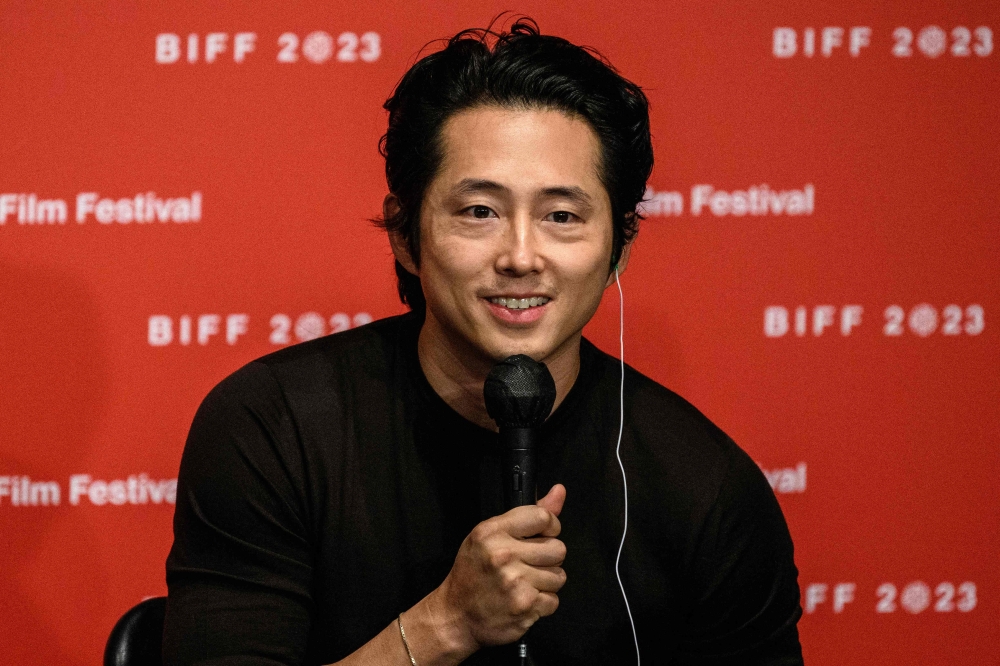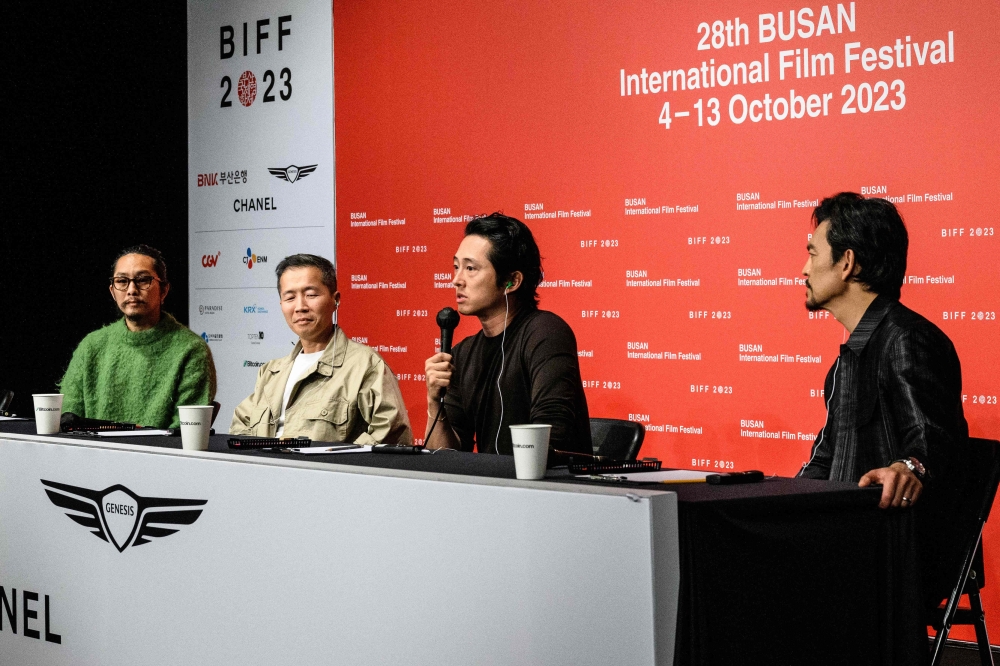

The rise of South Korean diasporic cinema has allowed the artists involved to feel less alone, one filmmaker told Busan International Film Festival attendees on Friday.
Six films from the diaspora are unspooling as part of a special sidebar this year in the South Korean port city, including Isaac Chung's Oscar-winner "Minari" and Celine Song's Sundance favourite "Past Lives".
Since "Parasite" became the first non-English-language film to win a Best Picture Oscar, films made by the Korean diaspora have experienced a remarkable surge, with filmmakers delving into culture-spanning narratives that encompass their varied experiences.
"(The) main thing it's done, at least for myself, is to know that as I tell my own stories, people are finding common ground to relate with one another," Justin Chon, who directed 2021 adoption drama "Blue Bayou", told reporters.
He has since directed four episodes of the successful Apple TV+ series "Pachinko", the story of an ethnic Korean family living in Japan, based on the novel by Min Jin Lee.
When "other immigrants and minorities in the United States are telling their stories, the only thing it does is signal to me that I really wasn't alone this entire time", he said.
"Minari" director Chung said as a second-generation Korean-American, he had always felt "a loss of a place that I don't fully understand that is far away from me".
Korean-American actors Steven Yeun and John Cho were unable to comment on their American projects due to the ongoing Screen Actors Guild strike, but both freely discussed why they believed the work stoppage was important.
"I think the strike is a very righteous act of making sure that we ensure and protect artists and those who are living an actor's life and a writer's life," Yeun said.

"And there are many people who don't have safeguards.... I sit here with so much privilege to be here and to be able to talk about it."
Cho, who starred in the 2018 thriller "Searching" which is screening at this year's BIFF, said artificial intelligence -- a key concern for striking actors -- has "put people out of work" in the entertainment industry.
"When I go to see a movie (it's) to see people enacting a human drama and to have an experience with an audience watching human expression," he said.
"And so behind the scenes, if we start taking out people, the art form is going to suffer."
- Collaboration -
The festival's diaspora section features several intriguing collaborations between diasporic and South Korean artists as well as those from other nationalities.
"Burning" (2018), for example, is based on Japanese writer Haruki Murakami's novel, directed by acclaimed South Korean filmmaker Lee Chang-dong, and stars Yeun.
Korean-Canadian director Song's "Past Lives" (2023), meanwhile, co-stars South Korean actor Teo Yoo and Korean-American actress Greta Lee.
Yoo, who is fluent in English, on Thursday candidly expressed the challenges he faced in trying to present himself as an appealing love interest to the American audience.
In "Past Lives", he plays a South Korean character who speaks English with a heavy accent and less-than-perfect fluency.
Director Chon's latest film "Jamojaya", which features a collaboration with Indonesian rapper Rich Brian and actor Yayu Unru, had its Asian premiere at BIFF.
"So this is my fifth film, and the first three were centred around Korean Americans," Chon said after a BIFF screening on Friday, when asked about his collaboration with Indonesian artists.
"To really create empathy and understanding for ourselves as a whole, we should start telling each other stories, especially in the whole Asian diaspora."--AFP
Oman Observer is now on the WhatsApp channel. Click here


